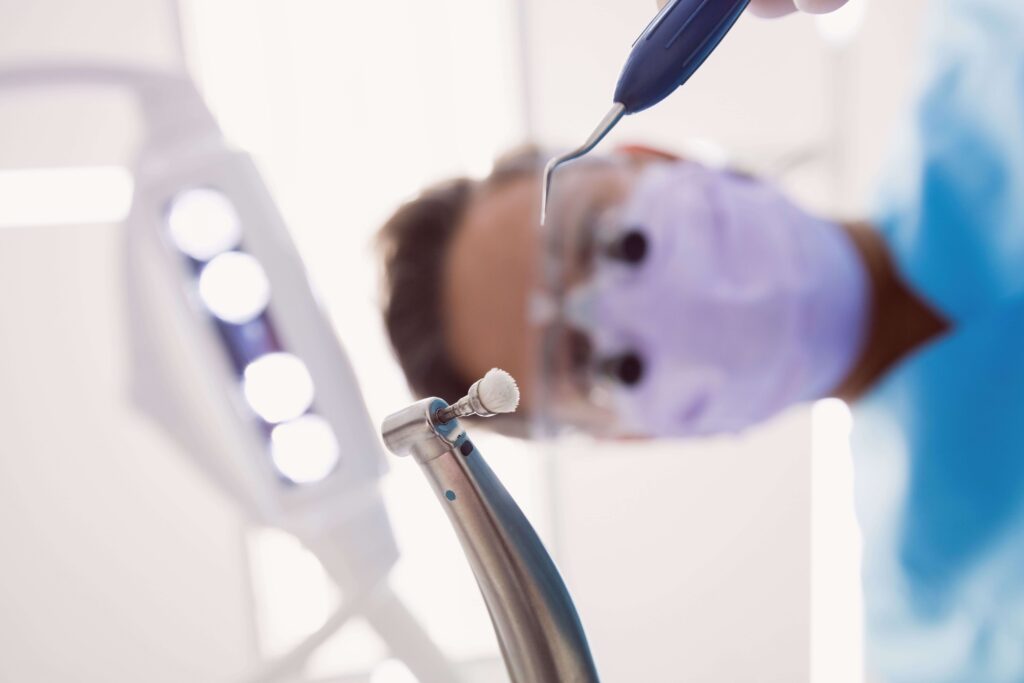Do you ever wonder if you’re making a difference as a dentist? I’ve pondered on that over the years. I mean, in a paternalistic way, we know we’re doing what’s best for the patient, we take pride in preventative measures, catching decay before it leads to pulpal necrosis, etc. It really is a noble calling. But from the patient’s perspective? Do they think we’re doing anything transformative?
In my mind’s eye from a patient perspective, I always saw it this way “Go to the dentist, sit in the chair, and the dentist asks about my vacation 6 months ago, quickly cuts to the chase and tells me I have cavities that I don’t know about and I’ve never seen and they’ve never bothered me. Trust dentists, pay a lot of money to have them fixed on blind faith, and go home numb and battle-worn. Rinse and repeat in 6 months unless I can find a really good excuse between now and then.” Like the philosophical quandary of the unattended tree falling in the forest, if we filled a tooth but no one cared, did we make a difference? Maybe I’m a tortured soul, but some version of that question has been pinging around in my brain for the last decade. Or maybe the apathy was accelerated by too many years in public health…
For me, full arch dentistry is unique from most bread-and-butter procedures because it does allow me to change someone’s life. Like it or not, we all make snap judgments when we first meet someone. A lot of patients with terminal dentition spend the day in and day out being unfairly judged. Most socially adjusted adults know better than to say anything offensive to someone’s face, but guess who doesn’t? Kids. They can be brutal, I know because I have three. I get cornered in the kitchen looking for a snack. A three-foot-nothing gremlin shows up out of nowhere and has me cornered. Never one to miss an opportunity, she pokes me in the gut and says “Dad, you’re fat.” Boom, emotional smackdown from a tiny human 1/10th my age. But it cuts to the core because I know she’s right. No malice, just calling them as she sees ’em. We have quite a few patients that end up in our consult chair because a grandkid asked why their teeth are scary. The unfiltered truth hurts, and it can be devastating or motivating, or usually both.
And the rest of us “grownups” that aren’t saying anything overtly are speaking volumes through our body language. Daily doses of unintentional lingering stares and brief looks of surprise or disgust from passing strangers frame the reality of these patients with shame. Often, the patient will avoid us dentists like the plague because they have a lifetime of associating our offices with shame for not brushing harder, flossing more, or being a more upstanding and responsible citizen. The thing we don’t like to talk about as dentists are that oral hygiene isn’t fair. Like the rest of the body attached to the mouth, the genetic lottery plays a huge role. That patient that gets a high five twice a year for the no-cavity club might never touch a toothbrush, but he just naturally runs basic, and then you’ve got this poor girl with acidic spit that does the whole deal religiously twice a day and can’t catch a break. Just when she gets her last tooth MOD’ed it’s time to start in on the recurrent decay.
So this all adds up to a lot of emotional baggage when a patient finally musters the courage to come in for a consult wanting to get their smile and life back. From my vantage point, we have a moral obligation to create a safe place for those that have already endured so much. Having done hundreds or maybe thousands of these consults, patients may be quiet and aloof, they may come in apologizing to try and get in front of the shame they think we are about to administer, some are detached and just straight up pragmatic about their debacle. But they all need basically the same thing. They need to know they’re in a judgment free zone. They need to know that you and your team are there to meet them where they are at and to help them get where they want to be. They might need you to give them hope that they can make it to the other side of the canyon. I’m not known for emotional displays or even letting my feelings show, but a little bit of empathy can go a long way for these patients.
And…remember that each person is an individual with their own coping mechanisms, and we need to treat them like one. Let me share a story to illustrate. I had a patient that seemed borderline disinterested during the consult process. We tried to meet him where he was at, telling him we were there to help him, etc. but I got almost no response. I can do hot or cold, but this sort of lukewarm just made it hard to carry on with consult as I had no idea what side of the fence he was sitting on. I didn’t even know if he was interested, but I still gave him the best version of me as I always try to do in consults, which was frankly hard to do since a big part of connecting with the patient involves mirroring their behavior and demeanor. Next thing I know, he’s on the other end of the office getting his records to move forward with a double full arch case. Now this was intriguing…for whatever reason, my read was this guy was nearly devoid of emotion, but we’d obviously connected with him enough for him to immediately entrust us with his mouth and a lot of his money. On reflection, I realized that one’s brain and inward thoughts aren’t necessarily connected to their outward expression in a direct way. This might have been his best expression of contentment and excitement, but it came across really flat when referenced against an average patient somewhere in the middle of the emotional-expression bell curve. Conversely, we’ve all had the patient who will promise us the world on the introductory phone call, and then no-shows the consult appointment three times in a row. Humans are funny and unpredictable, but that’s what keeps it fun and interesting.
Happy Arches from Your Arch Bro,
Clark Brinton DMD

